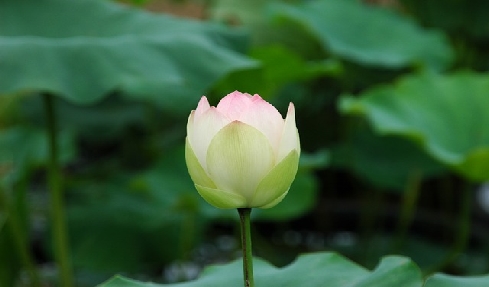Before meditation, we should first get ready, that is, shut the door, go to the bathroom, turn off the cell phone, etc. We should deal with these chores ahead of time so as not to disrupt the actual meditation practice. Thereafter, go to a shrine room if there is one, and prepare a cushion. This cushion is called a meditation cushion; it should be higher in back than in front to allow the body to sit comfortably. As you sit on the meditation cushion, make the following vow: during this sitting, I will remain in meditation no matter what.
~Depicted from THE FOUR SEALS OF DHARMA - Preparing for the Preliminaries











